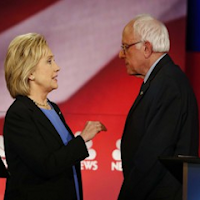
Texas primary early voting starts third on Feb 16th, after the Iowa Caucuses on Feb. 1st and New Hampshire Primary on Feb. 9th. Heavy media coverage of the Iowa caucuses and New Hampshire Primary leading into the start of Texas early voting will drive election interest among Texas voters of both parties. That media attention will prime the turnout pump for the first week of Texas early voting.
Media coverage of Nevada's caucuses on Saturday Feb 20th, half way through the Texas early voting period, will keep Texas early voting interest high. During the last week of Texas early voting, media coverage leading into South Carolina's Saturday, Feb 27th primary will also keep interest high.
And heavy media coverage of South Carolina's Saturday primary results during the Sunday and Monday before Super Tuesday will drive election day turnout interest among Texas voters and voters in the other Super Tuesday state.
Iowa
Iowa precinct caucuses will allocate 46 pledged delegates on Monday, Feb. 1, 2016. The byzantine rules of Iowa Democratic Party caucuses give outsider presidential candidates a chance at legitimacy — or sudden irrelevance. Unlike Republican caucus rules, where all votes are counted equally, Democratic Party caucus-goers gather in groups for each candidate during a 30-minute alignment period. If a candidate's group count does not reach 15 percent of the total attendance count, its members must realign with a different candidate to be counted for delegate apportioning.
The complicated Democratic caucus rules are tilted toward normalizing the strength of candidates, especially in two and three person races. Only the number of delegates awarded in each of Iowa's 1,681 precincts will be published on caucus night. (video right documents a 2008 caucus.
No official record of the each candidate’s share of total caucus vote counts, which usually mirrors polling data, will be published. Candidates can easily tie in the precinct delegate count allocation, even if one candidate has far more support inside the caucus room. Whether the Sanders campaign or Clinton campaign is more successful at getting out caucus voters, they're relative delegate count reported by the precincts — individually and collectively — may in fact look more like a draw than a win.



